No writer is an island. Behind every blossoming wordsmith is a literary industry putting in the hard yards to discover, develop and share stories with as many readers as possible.
Yet some of the people with the most knowledge about Australian literature are those we hear from the least: the publishers who read hundreds of manuscripts a year; the editors of literary journals who nurture new and emerging writers; the festival directors reading as widely as possible, scoping for the newest and most exciting voices.
So who do leading literary insiders from around Australia think are the emerging writers to watch right now? Guardian Australia asked them for the scoop.
Michaela McGuire, Sydney writers’ festival
recommends
Peter Polites
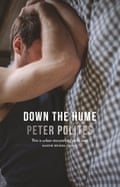
Some of the most important and exciting writing in the country is being developed by Sweatshop, western Sydney’s literacy movement, and last year associate director Peter Polites finally launched his debut novel Down the Hume.
I say “finally” like Peter’s been dragging his feet, making us wait an unnecessarily long time for this book, but he’s only been writing for a few short years, and has been extraordinarily prolific in that time. In 2014, he cowrote and appeared in a Sweatshop production called #ThreeJerks, a spoken-word play that focused on the media response to the Sydney gang rapes in 2000. His performance text for Urban Theatre Projects, Steps into Katouna, was put on for this year’s Sydney Festival.
In all his work, Peter is a true original: he’s celebrated for writing dark realism in the tradition of the early works of Christos Tsiolkas and Luke Davies, but I think he’s funnier than either of them. Down the Hume is queer noir, a melodrama that’s unpretentious, spare and squarely placed in his native western Sydney. A first generation Greek Australian, Peter’s writing examines the borders of society, both geographical and imagined, and the intersections between queer and ethnic identity. He’s one of the most intelligent writers I’ve ever read, and I can’t wait to see what he does next.
Michaela McGuire is the artistic director of Sydney writers’ festival. She also co-founded the Women of Letters literary salon, and was previously the director of the Emerging Writers’ festival.
Reading list
Down the Hume (Hachette)
Public Spaces: Mind Street Virus (The Lifted Brow)
Sam Cooney, The Lifted Brow
recommends
Ellen van Neerven
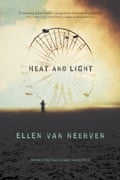
Ellen van Neerven is one of the most important emerging writers in Australia – and not least because I know she would be very keen to quickly shake off the cloddish tag “important” as we try, here, to drape it over her shoulders. A proud Mununjali woman from the Yugambeh language group of south-east Queensland, Ellen is one of the most unselfish and giving writers, despite her prodigious and growing talent.
Her debut book, Heat and Light, is an extraordinary work of linked fictions. For me, the central piece of the book, Water, did what the very best writing can do: after reading it, the world around me was different, never to be quite the same again. Ellen’s poetry is exciting in a way that poetry often struggles to be (her poems were recently collected in Comfort Food; find yourself a copy), and her non-fiction, published widely, explores myriad subjects, always with an unsettling background clarion call that causes you to sit up and take notice, because something vital is always happening even if you don’t quite know what it is. Readers everywhere are fortunate that Ellen exists, and writers everywhere are even more so.
Sam Cooney is the publisher of The Lifted Brow, a Melbourne-based literary journal that publishes emerging and experimental writing. He is also the publisher-in-residence at RMIT and a sessional creative writing lecturer.
Reading list
Heat and Light (UQP)
Comfort Food (UQP)
Expert (Overland)
Marieke Hardy, Melbourne writers’ festival
recommends
Eddie Paterson
It’s possibly unusual to be nominating a poet in this category, but when a writer such as Eddie Paterson falls across one’s radar the thrilling potential can’t be ignored. His latest collection, Redactor, uses found texts from ordinary daily life to make word-magic on the page.
What’s interesting to me about Eddie’s writing is the visual aspect: while these works exist as pieces of pure poetry (and translate effortlessly to spoken-word performance), they command attention on the page by blacking out and “redacting” slabs of text. In a literary landscape where the weaponisation of language is a keenly felt concept, it’s pertinent and exciting to see a poet extending across disciplines. Eddie interrogates the boundaries of poetry and makes beautiful art; I am full of quiet admiration.
Marieke Hardy is the incoming artistic director of the Melbourne writers’ festival. She is also the cofounder of Women of Letters, and was a regular panelist on ABC TV’s The Book Club.
Reading list
We Will Not Pay (Overland)
Sheep Poems (Cordite)
led zeppelin (Red Room Poetry)
Geordie Williamson, Island
recommends
Luke Carman
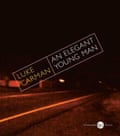
Post Trump, many in the American intelligentsia have suddenly, belatedly discovered the existence of a white American proletariat. They have flocked, for example, to books such as JD Vance’s Hillbilly Elegy – accounts that anatomise and explain those inexplicable freaks who remain so hell-bent on elevating a hand grenade in human form to the presidency of the United States.
We, here in Australia, are not even engaged enough to care about the second efflorescence of One Nation – though we should be. If we do care to know what it is that the silent majority of our nation is thinking, Luke Carman is our best and most necessary guide. He’d hate this description: he’s an artist, not a journalist. And yet, the semi-autobiographical account of growing up in the western suburbs of Sydney contained in Carman’s first book, An Elegant Young Man, is to me the smartest, funniest, most eloquent and intellectually urgent account of what it is to be a working class Australian that I have encountered. This one slender volume has more smarts, more sincere eloquence, more comic savagery, more unrepentant auto-evaluation, than any other title published in this country. The prose may sprawl in gloriously untidy ways but the mind that animates it is succinct, and brutally so. This is not fiction for the reading classes.
Geordie Williamson is the former chief literary critic at The Australian. He now works as a publisher at Picador, and is the editor-at-large of Tasmanian-based literary journal, Island.
Reading list
An Elegant Young Man (Giramondo)
Getting square in a jerking circle (Meanjin)
Zoe Pollock, Brisbane writers’ festival
recommends
Claire G Coleman
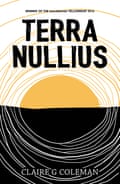
Indigenous Australians are often described as having the oldest storytelling tradition. It is no surprise then that some of our best national storytellers are First Australians, including Alexis Wright, Kim Scott and Leah Purcell to name but a few. Today’s custodians of this tradition are exploring new modes and forms of expression, with inspiring and compelling results.
What’s particularly exciting to me is the fusion of Aboriginal cultural knowledge and the experience of dispossession with increasingly popular speculative fiction, demonstrated most recently on screen with Cleverman. Claire G Coleman takes the exploration of this genre to the next level in her debut novel, Terra Nullius, developed as part of the black&write program at the State Library of Queensland and published by Hachette.
Coleman, like so many of our Indigenous writers, demonstrates how acutely our history – most specifically, dispossession and colonisation – is with us in our present day and is not beyond becoming our future. Coleman, a south coast Noongar woman from Western Australia, goes to the heart of Australia’s challenge as a nation – how to universalise the experience of Indigenous people, so that it is something all Australians can understand. This is the essence of good fiction: it takes us away from our present reality and into another. Coleman’s writing does this in a riveting way. This is only her first offering: we have many years of compelling reading ahead of us.
Zoe Pollock is the chief executive and artistic director of UPLIT and the Brisbane writers’ festival.
Reading list
Terra Nullius (Hachette)
Mindy Gill, Peril
recommends
Shastra Deo
When I read Shastra Deo’s poems, my immediate sense is of a poet who pushes each line, each word, as far as it can go, and then a little further. What struck me most about Deo’s recent poems in Peril, Shastra Deo and Genesis, is how she measures the mythic and classical by her own obsessions: her own origins and that of the lexical.
Her award-winning debut poetry collection, The Agonist, only confirms her place among Australia’s most exciting poetic voices. She writes in persona – a difficult thing to pull off – using the corporeal to explore the human animal in all its beauty and violence. I am in admiration of her work and look forward to watching her star continue to rise.
Mindy Gill is the editor-in-chief of Peril, a literary journal that promotes Asian-Australian writing.
Reading list
The Agonist (UQP)
गुम; or, Lexical Gaps (Cordite)
Amy Middleton, Archer
recommends
Fury
Part of our mission statement at Archer is to keep the writing accessible for as many people as possible. Increasingly, though, the articles I receive about diverse identities are complex, verging on impenetrable – a style that risks alienating the very people they’re supposed to reach.
Accessibility is what sets Fury’s writing apart. They are a Melbourne-based writer, spoken word performer, poet and comic artist, with a passion for making complex topics such as oppression, queerness, gender identity, and even love, digestible, illuminating and fun to read (where appropriate!). Fury’s writing reveals the agency, strength and pride of oppressed communities, while staying sensitive and compassionate to individual experience. For discussions of diversity, this is a powerful combination.
This year, Fury received the Kat Muscat fellowship for the creation of a new work examining the interaction between lesbians and gay men during the HIV/AIDS crisis. The fellowship honours the late Kat Muscat, another writer who expertly framed inclusive discussions of sex and gender with respect and compassion.
Amy Middleton is the editor of Archer, a Melbourne-based magazine for writing on sexuality, gender and identity.
Reading list
Extracting queerness from a narrative of suffering (Archer)
Fury against the plebiscite (Overland)
Love and Anger: How popular culture sells aggression as romance (Kill Your Darlings)
Catherine Noske, Westerly
recommends
Caitlin Maling
There is a lot that is wonderful happening in Western Australian literature. Josephine Wilson’s Miles Franklin award for Extinctions is testament to this, and younger author Kyra Giorgi has just won the Steele Rudd prize for her short story collection, The Circle and the Equator.
Caitlin Maling now has two published collections of poetry: Conversations I’ve Never Had and Border Crossing, both from Fremantle Press. She has a huge list of awards and fellowships to her name, and she currently holds a Marten bequest. With these successes, she is gaining plenty of attention as a poet. But I also love her criticism. With an MFA, she publishes in academic circles as well as regularly producing essays and reviews.
Maling offered a beautiful essay to our last issue of Westerly – a piece which poetically deconstructed her process of writing, offering a glimpse into an experience of travel marked by its shifting revelations, turning back on Western Australian scenes. It is a delicate and subtle exegetical work. This capacity for contemplation makes Maling an intelligent writer, in all forms, and one I always enjoy reading.
Catherine Noske is the editor of Westerly, a literary journal which publishes emerging writing out of Western Australia and the Asian-Australian region.
Reading list
Conversations I’ve Never Had (Fremantle Press)
Border Crossing (Fremantle Press)
Diego’s Head (Cordite)
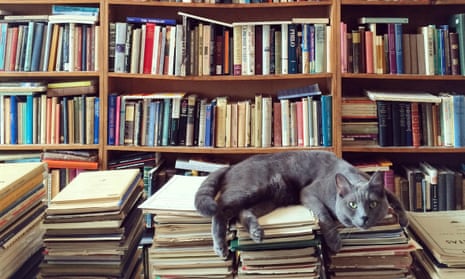
Comments (…)
Sign in or create your Guardian account to join the discussion